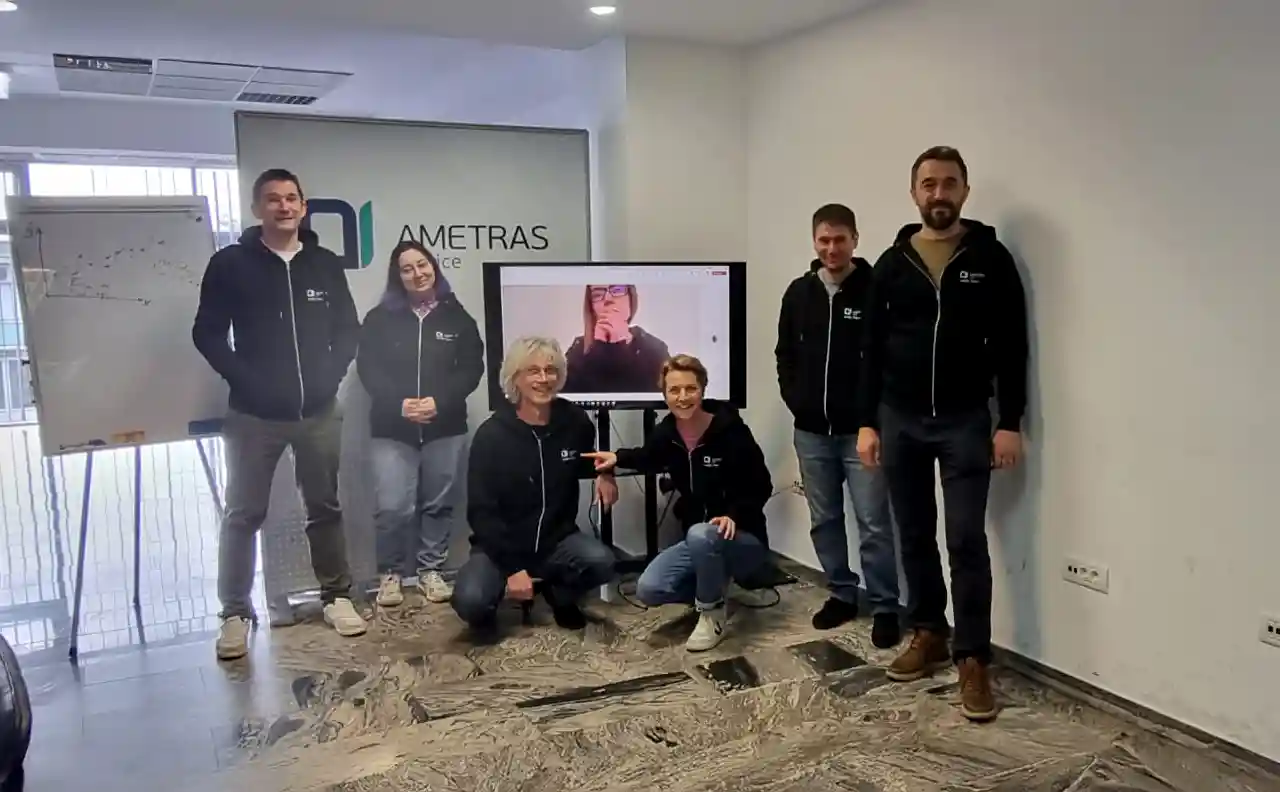Introduction
Few technologies are transforming digitalization as profoundly as Artificial Intelligence (AI). From automation to self-learning systems, AI is changing how organizations process information and make decisions. In the field of document processing, AI has become a key driver — promising to automate repetitive manual tasks while improving data quality and efficiency.
At AMETRAS ecm, we have explored one central question:
What can AI really achieve in the real world of document processing?
In this article, we share insights from our six-month research project, discuss the current potential and limitations of AI, and show how these insights have influenced our ongoing product development.
Why AI Matters in Document Processing
Every day, organizations handle thousands of critical business documents — invoices, orders, order confirmations, and delivery notes — often in varying formats, languages, and layouts.
Traditional OCR and rule-based systems have been reliable for years, but they reach their limits when documents are unstructured, inconsistent, or contain handwritten data.
This is where Artificial Intelligence comes in.
Machine Learning (ML) and Large Language Models (LLMs) aim not only to read information but also to understand it — recognizing semantic relationships and adapting flexibly to different document types.
But how advanced is this technology today? And what can it realistically deliver?
That was exactly what we set out to discover.
The AMETRAS ecm Research Project
In spring 2024, the AI/ML team at AMETRAS ecm, led by Andreas Schuler, an expert in OCR and neural networks with over 30 years of experience, launched an in-depth research initiative.
The goal was to evaluate the actual performance of modern AI- and LLM-based models in document data extraction.
Over six months, we tested how various AI approaches handled real-world documents, including:
- Invoices, orders, and order confirmations from different countries and in multiple languages
- Insurance and business documents with diverse structures
- PDFs with and without text layers, scans, and fax documents
We experimented with both pre-trained open-source models and fine-tuned LLMs, combining them with classical OCR in hybrid setups.
Key Findings
Our results painted a realistic picture of where the technology stands today:
- Text-only LLMs without layout awareness achieved around 45 % correct field extraction.
- Layout-aware models, which consider spatial document structure, improved accuracy to roughly 54 %.
- Table recognition remains challenging, especially with complex or nested layouts.
- Hybrid systems (“Mixture of Experts”), combining AI, OCR, and traditional logic, delivered the best results.
- Prompt-based methods (e.g. ChatGPT-style) were inconsistent and prone to hallucination, depending on parameters and training data.
The conclusion:
AI is not a magic solution — but combined with proven methods, it becomes a powerful tool to significantly boost efficiency and data quality.
From Research to Application: AMETRAS ecm.docProcess
Building on our research findings, we moved from theory to practice.
With AMETRAS ecm.docProcess, we have created a platform that combines the best of both worlds:
- AI-driven document understanding for flexibility and adaptability
- OCR and rule-based logic for precision and stability
- Optional manual validation by specialized experts
- Seamless integration into ERP and CRM environments
A key principle for us:
All AI models are hosted internally, ensuring that documents stay in-house and fully under our control. This guarantees that customers benefit from the advantages of modern AI — without compromising data security or compliance.
Conclusion
Artificial Intelligence is transforming document processing — not through revolution, but through evolution. The future lies in the intelligent combination of proven technology, experience, and modern AI methods.
Our extraction systems have incorporated AI components for years, continuously learning and improving with every document they process. This results in solutions that become smarter over time — secure, explainable, and efficient.
At AMETRAS ecm, we see AI not as a replacement, but as an enhancement.
Our ongoing research and development aim to harness this technology responsibly and purposefully, wherever it creates real value.







